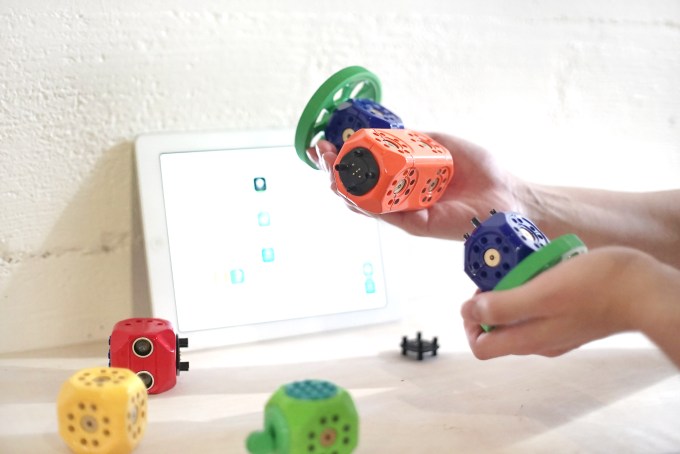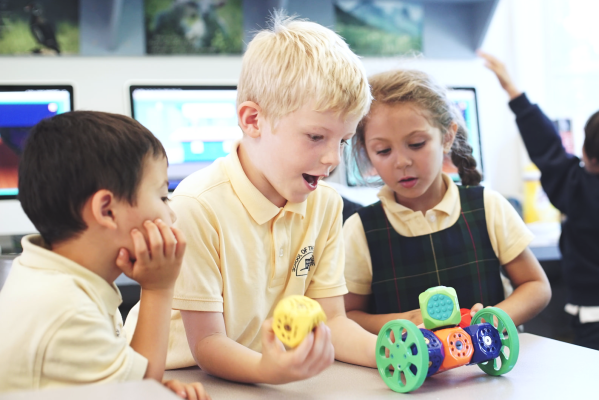When we last saw Robo Wunderkind, the company was on stage as part of the Startup Battlefield competition at Disrupt SF 2015. This week it is announcing that it has closed $500,000 in new funding. The round was led by Arkley VC, with participation from angel investor Juergen Habichler and the Austrian Federal Promotional Bank (AWS).
Robo builds programmable cube that teach kids how algorithms and code work.
Each cube has 15 embedded electronic sensors and motors, even a camera, that allow them to react and interact with their world around them. Each cube easily snaps together, enabling kids to safely build any structure they can imagine. Think of them as Lego for the next generation.

When Robo launched, the team demoed a basic drag-and-drop learn-to-code app to accompany the physical cubes. Today, Robo Wunderkind is bringing those worlds closer together with its new iOS and Android app called Robo Play.
When cubes are snapped together to create a robot, the app automatically imports the functions of those cubes as well as the robot’s configuration dashboards. With this information, the app can better assist children in creating control systems and making the most of their creation.
[gallery size="medium" ids="1389246,1389247,1389248"]
To date, much of the company’s early customer development has been focused around collaboration with schools — public schools in Vienna, where the team is based, and also in Berkeley, California. In these contexts, students have built a basic security camera, taken photos of new movement in a room, created a weather station that reports temperature in each new location and even a “cube car” that is able to navigate for itself.
Moving forward however, Robo sees itself as a broader consumer product, available any where that parents and kids may be shopping. The company is also looking to expand on the core features of the cubes, allowing them to connection to other internet of things devices in the future.
Preorders are still open through the end of the month with a starter kit priced at $199, significantly higher than your basic Lego set but much less than the Death Star Kit. That being said, you can’t put a price on learning.
The company launched a Kickstarter campaign at Disrupt, which went on to raise over $246,000 from 1,169 backers. The company’s backers will start to see the Robo Wunderkind modules arrive later this year, slightly delayed from their original summer 2016 date, but still in time for the holiday season.
We’re excited to see another Startup Battlefield alum making progress and seeing some successes post-Disrupt, and we can’t wait to see what the next batch of Startup Battlefield companies has in store for us at Disrupt London 2016.
Applications to the Battlefield are open now through October 5, so if you meet the eligibility criteria, be sure to fill out an application here.
